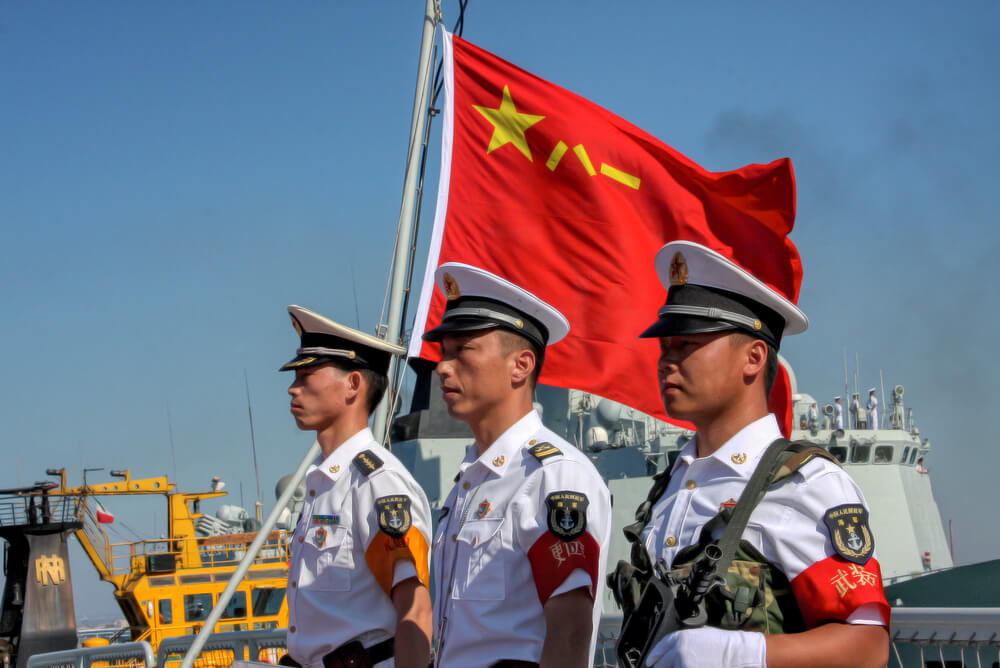Chinese leader Xi Jinping has changed his fifth defence minister in the last 10 years since he has been in power.
As of last Friday, by decision of the Standing Committee of the National People's Congress (parliament), the new Minister of Defence is Admiral Dong Jun, former commander of the People's Liberation Army Navy.
Admiral Dong's appointment is supposed to close the institutional gap, given that his predecessor, Li Shangfu, disappeared from the post last August, when he was last seen in public, and was formally removed 2 months later.
Admiral Dong, whose biography is not widely known, comes to high office as a choice of Xi Jinping. This is similar to all predecessors in his place, none of whom stayed in office long on average.
The previous minister, Li Shangfu, was only in office for 7 months, after which he mysteriously disappeared from public view.
Following that tradition, Admiral Dong cannot hope for a peaceful tenure, as he will be under pressure from the heads of the Central Military Commission, the de facto principal body that manages the defence and the army, and President Xi, as the supreme military commander.
Navy symbolism
In the Chinese political and military hierarchy, the Minister of Defence has more diplomatic and political powers than military powers.
His primary duty is to maintain high-level communication with the defence elites of other states. Issues of military strategy and defence system management are the responsibility of the head of state and the Central Military Commission.
From this point of view, the change at the top of the Chinese Ministry of Defence does not represent a significant change in military doctrine or the command system, given that the minister does not participate in it.
There is a lot of symbolism in the fact that the first man of the Chinese Navy was appointed as the Minister of Defence
However, there is a lot of symbolism in the fact that the first man of the Chinese Navy was appointed as the Minister of Defence because, before that, he was the commander of the navy's southern wing. This wing is responsible for one of the most security-tense zones in the world - the South China Sea and the Taiwan Strait.
With this decision, the political-military leadership in Beijing wants to emphasise the navy as the primary segment of the entire defence system. This is the sector of which the state leadership expects the most regarding the current military tensions.
Military dialogue with the US
The appointment of the new defence minister comes at a time when the Chinese-American military dialogue has been renewed after a long and tense break without communication.
President Biden's military adviser, General Charles Q. Brown, had a video conference with his Chinese counterpart, General Liu Zhenli, last week.
Military-to-military dialogue between the US and China has been in crisis for several years due to China's aggressive military activity in the South China Sea region and towards Taiwan. It died down after the visit of the US House of Representatives Speaker at the time, Nancy Pelosi, to Taiwan a little over a year ago.
The appointment of China's new defence minister hints that direct communication between the 2 governments could be extended to the level of 2 defence ministers
The renewal of this dialogue was perhaps the most crucial point of the last November meeting between Presidents Biden and Xi in San Francisco and one of the most significant developments.
The appointment of China's new defence minister is in line with that agreement and hints that direct communication between the 2 governments could be extended to the level of 2 defence ministers, currently in full capacity on the Chinese side.
However, the new personnel decision of the government in Beijing has the most significant repercussions on internal issues at the top of the Chinese state.
Risky personnel choices
With the appointment of the defence minister, Xi Jinping wants to consolidate the establishment after turbulence and numerous changes at the top of the state apparatus that have taken place in the past year.
First, the disappearance from the public and then the formal dismissal of the previous Minister of Defence, Li Shangfu, was just one of the significant personnel changes at the top of the army.
Before this, there were changes in the leadership of the strategic-missile force last July and the removal of the president of the military court of the People's Liberation Army after only 8 months in office.
 None of the personnel changes in the various structures of the military establishment were accompanied by a clear explanation
None of the personnel changes in the various structures of the military establishment were accompanied by a clear explanation
On top of that, several military officers and chiefs of military industries were dismissed, and 9 senior officers were expelled from the national parliament.
None of the personnel changes in the various structures of the military establishment were accompanied by a clear explanation. However, Xi probably wants to keep his doctrine of fighting corruption at the top of the state as one of the top priorities of his rule.
The frequent personnel changes in the most responsible positions, sometimes even after only a few months, cast a shadow on the leadership authority of Xi Jinping as the person most responsible for personnel decisions in the state and military leadership.
Many of them, like the previous defence minister Li Shangfu or the recent foreign minister Qin Gang (only 7 months in the post), are a blow to Xi's ability to assess the credibility of his personnel choices.
Admiral Dong, the new Minister of Defence, will bear this burden whether he likes it or not, and whether he was a good choice will constantly be questioned during his new tenure.